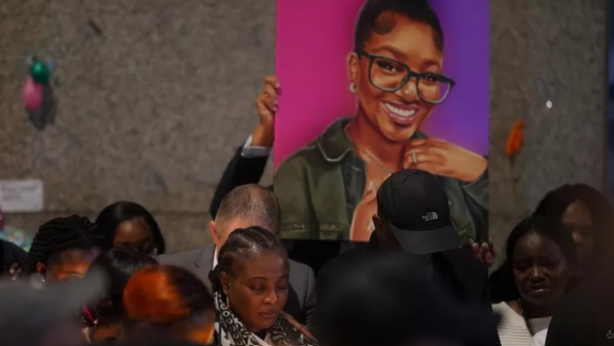Gender, Victimhood, And Violence: Depp-Heard Trial Reflections
Trigger warning: discussion of domestic violence and sexual abuse.

The Johnny Depp-Amber Heard defamation trial spiralled into something much more when both parties accused the other of domestic violence; more still when it was live-streamed for the world to watch. Of course, whenever accusations of violence are made, it’s a serious and complex matter. But the added complexity of a two-way accusation and claims of defamation doubled the severity on both sides.
After ending their marriage in 2016, Amber Heard and Johnny Depp battled in court over an op-ed Heard wrote for The Washington Post in 2018, where she recounted her experiences of surviving domestic violence, without mentioning Depp by name. Depp sued for $50 million in damages, leading to a lengthy, messy trial where both parties claimed to have been abused by each other. Ultimately, the jury unanimously found that Heard could not substantiate her allegations and awarded Depp $10 million in compensatory damages and $5 million in punitive damages in his defamation suit. Meanwhile, Heard was also awarded $2 million due to defamation by Depp’s lawyer.
Even within the social justice community, this case caused division. Is Johnny’s win yet another example of society’s underlying bias against women and a silencing of their experiences? Or is it a long-awaited recognition of male domestic violence victims, shattering the gender roles we are all trying to dismantle? Let’s explore.
Survivors already have many barriers preventing them from reporting their abuse or having it believed or vindicated, and cases like these only add more.
Victim-Blaming and Shaming
The verdict itself has serious implications in terms of knock-on effects for victims of domestic violence of all genders. Survivors already have many barriers preventing them from reporting their abuse or having it believed or vindicated, and cases like these only add more. Add to that the fact that women are more likely to be the victims of DV, and this consequence is undoubtedly gendered.
What the verdict taught us is that if you come forward with allegations of abuse (which survivors are already unlikely to do), with an estimated 70% of domestic violence and 95% of sexual assault cases going unreported), even if you don’t name names, you could be subject to backlash. This emboldens abusers everywhere. Essentially, it suggests that you will more likely be accused of lying, than being believed.
Ultimately, both the way in which Amber’s victimisation was questioned throughout the entire trial, as well as the resulting verdict, perpetuate the myth that women lie about abuse—even though a UK court previously found Johnny guilty of 12 instances of assault. Furthermore, only 2-10% of sexual violence claims are found to be false.
A Catalyst for Misogyny
Also distressing was the “orgy of misogyny” that this case unleashed—from the horrific online comments and public ridicule of Amber to the reports of men calling their partners “Amber” when she complains about something. This all demonstrates the far-reaching, trickle-down, everyday consequences of women not being believed or taken seriously.
Johnny’s legal team capitalised on the likeability of Johnny’s fictional characters as their tool of redemption and it worked. It’s as though Captain Jack Sparrow (who wasn’t the greatest guy either, let’s be real) was on trial rather than the very real man who referred to Amber as a “worthless hooker” and “filthy whore.”
One could argue that Johnny being male, a well-liked and powerful one no less, has been used as a reason to believe him. Meanwhile, the misogynistic conceptions of women as inherently manipulative and vengeful justified the deplorable attack on Amber’s character. We seem to have forgotten that women haven’t been believed since time immemorial…
There are important differences between male violence against women and female violence against men, namely the amount, severity, and impact.
The ”Perfect Victim” Myth
That is, except for the “perfect victims”; the ones who act just as we think they should. The ones whose sexual history, substance use, or personality traits don’t unjustifiably call into question whether they are to be sympathised with, or even believed at all. A fundamental misunderstanding of how trauma and abuse work was demonstrated here. But we must also consider that just as Amber is not society’s picture of a “perfect victim,” nor is Johnny—and neither can be discounted as a potential victim or abuser of the other when there is damning evidence on both sides.
The audio clips of Amber taunting Johnny and claiming he wouldn’t be believed, his own physical injuries, and various testimonies recounting abuse he suffered may not be evidence that Johnny never abused Amber. Still, they do suggest that Amber perhaps wasn’t the only victim here. Of course, the added complexities of gender and associated power dynamics cannot be ignored, and as put by Women’s Aid: “There are important differences between male violence against women and female violence against men, namely the amount, severity, and impact.” But this case is about two people; both of whom have evidenced emotional instability and inflicted harm on the other in some way.
And just as there is no “perfect victim,” there is no perfect perpetrator; anyone is capable of abusive behaviour. This case demonstrates how black-and-white thinking reduces the incredibly complex issue of abuse—laced with the repercussions of personal trauma, the power dynamics unique to that relationship as well as societal ones related to gender and other social factors—to a simplistic binary of “good” and “bad”; “male” and “female;” “abuser” and “victim.” It’s never that simple.
Dismantling Gender Roles
Although women are still disproportionately impacted by domestic abuse, another consequence of patriarchy is the huge stigma around male survivors—whether emotional, physical, or sexual—and especially when the perpetrator is a woman. Denying the possibility that men can also be victims is only a step backwards.
In the UK, 26% of domestic abuse crimes recorded by the police were committed against men. Add to that the fact that half of male victims don’t tell anyone about the abuse, male victims of abuse should also be heard.
What matters is calling out abuse when we see it. Part of our journey towards a gender-equitable world is the understanding that all individuals, regardless of gender, are capable of all things—both good and bad.
Concluding Thoughts
In a post #MeToo world, society is becoming increasingly aware of the prevalence, variety, and insidiousness of domestic violence—but there are still myths and misunderstandings surrounding the topic that harm us all. This case has been explosive and has divided public opinion. But ultimately, this is not about pop culture—and it certainly shouldn’t be a form of entertainment. Rather, it shines a light on deep-rooted societal issues that affect everyone.
Whatever your take on this particular case, we must all acknowledge that both abusers and victims can be of any gender; just as they can be of any age and from any country and ethnic background. Assuming women can’t abuse men, or that men can’t be victims, only perpetuates the imposed gender binary that men are dominant while women are submissive: a trope that has long harmed everyone.
While we continue to take into account the statistics and patterns and listen to and support all those who come forward as survivors, we should not allow preconceived ideas of how abusers or victims should look or behave to cloud our judgement. Ultimately, debunking myths around domestic and gender-based violence is critical to spreading awareness about what is still a rampant and widely misunderstood issue.

Roxanna is a content writer and strategist who has led international advocacy campaigns for various NGOs and the EU.
Roxanna has written speeches, articles, and books on behalf of activists, political figures, and academics in the field of human rights and health. She has also had articles published in various publications and is managing editor of the online sociopolitical magazine, Euro Babble. She holds a Bachelor’s degree in French and Spanish from King’s College London and a Master’s degree in European Studies: Ideas, Ideologies and Identities from the London School of Economics and Political Science (LSE).

Lauren Foley is a Feminist YouTuber and writer listed on Diversein’s Inspiring Women Leaders List 2021 and is passionate about feminist communications.
She also facilitates gender equality, feminist video-making and LinkedIn workshops with a variety of organisations. She cares about explaining seemingly controversial topics in a digestible way and making feminism as accessible as possible. Lauren holds a bachelor’s in Law from University College Cork and a master’s in Law and Economics from Utrecht University.

